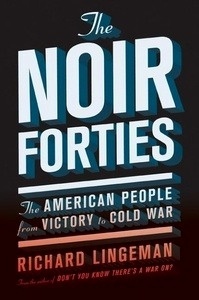The Noir Forties
The American People from Victory to Cold War

Editorial Perseus
Fecha de edición marzo 2014 · Edición nº 1
Idioma inglés
EAN 9781568589503
432 páginas
Libro
encuadernado en tapa blanda
Resumen del libro
VJ Day 1945, New York's Times Square. A laughing, screaming, yelling, dancing, singing, drinking, kissing crowd of more than 750,000 people packed Times Square in an orgy of celebration emulated in cities and towns across America. But an uncertain postwar world loomed. Americans feared that another depression would cancel out wartime prosperity. Those who grieved for the war's 400,000 dead faced a future of living with this heavy loss.
In The Noir Forties Richard Lingeman, one of our finest cultural historians, vividly recreates the momentous years between VJ Day and the beginning of the Korean War. In a mixture of memoir and history, he describes the attitudes, sentiments, hopes and fears, prejudices, behavior, and collective dreams and nightmares of the times, as reflected in the media, popular culture, political movements, and opinion polls. It was a time when the fears and anxieties, prejudices and sadness suppressed during the national war effort re-merged. It was also one of the most fecund moments in American culture, when noir films and literature articulated resistance to the hardening Cold War consensus. Lingeman tells how trends set in motion during those first peacetime years are still with us today-the loss of a sense of national unity, the rise of a society energized by materialism and consumerism, the birth of the national security state, and the campaign to undo the achievements of the New Deal and shatter dreams of a peaceful postwar world. Those years were marked by the readjustment pains of 15 million veterans, the fight between management and labor erupting in the greatest strike wave in U.S. history, the mourning for the dead, the rising fear of the Soviet Union fed by scare-mongering politicians and a newly created national security establishment, and the lingering images of the horrors of the atomic bomb and the Holocaust.
The psychological hangover of the war lingered to shape a darker mood, a reverse image of traditional American optimism and faith in the future, which tempered victory dreams of peace and abundance. The "postwar noir" phenomenon was grounded in this psychological residue of war, and Lingeman traces how it distorted the political culture. And how in the arts, it generated new creative ferment from Abstract Expressionism to film noir.
Richard Lingeman has created a memorable portrait of what the American people lived, dreamed, and thought during those years that were the crucible of the postwar world.








